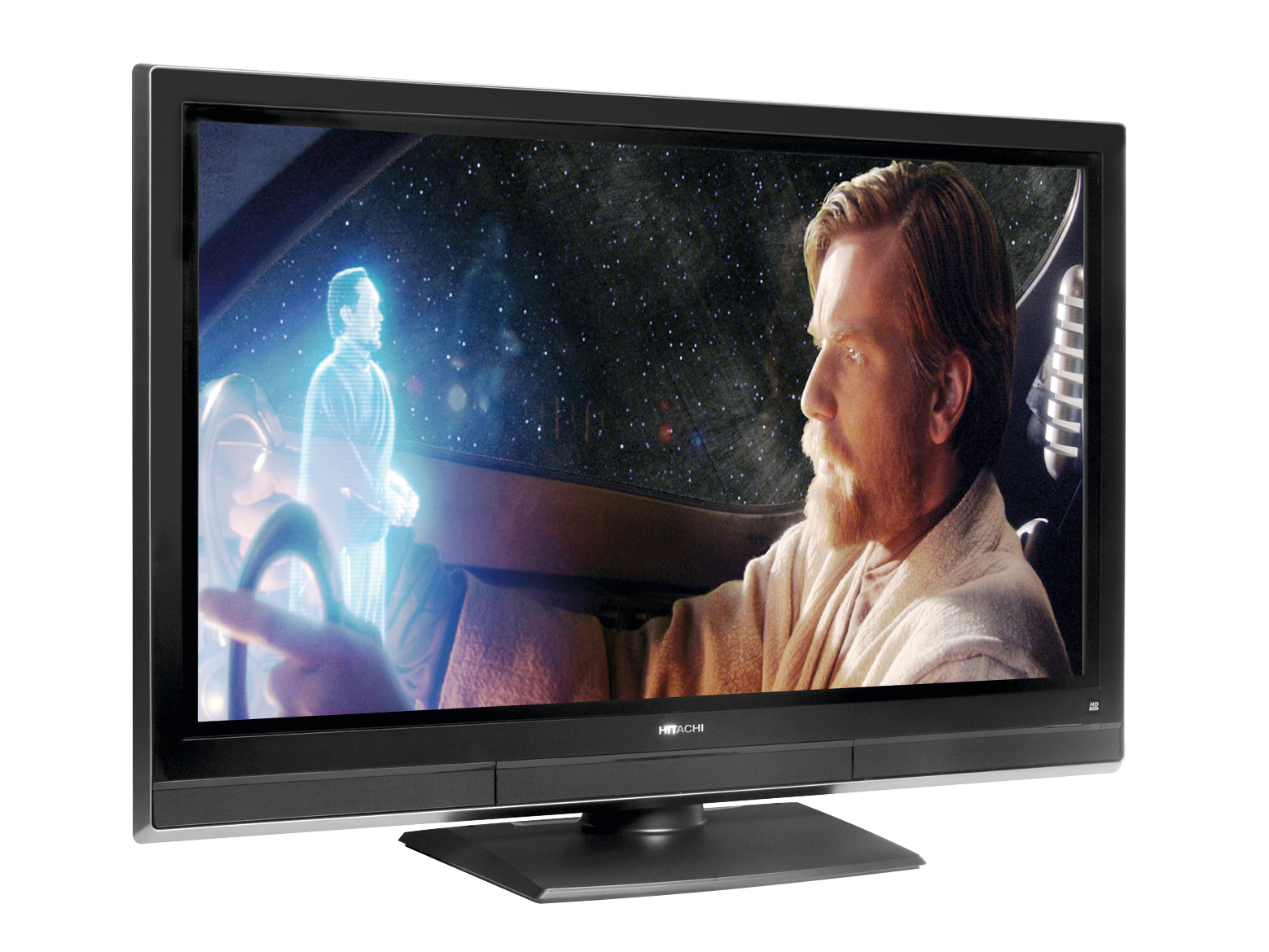TechRadar Verdict
Plenty of inches for your buck, but the picture quality leaves a little to be desired
Pros
- +
Well detailed pictures
Very natural tones
Cons
- -
Poor menus
Disappointing black levels
Motion blurring
Why you can trust TechRadar
The 50-inch P50T01U from Hitachi is a deeply appealing looker. A matt black bezel gives it a slightly less flash, but more authoritative, look than most rivals, with a dash of panache coming from an artfully tapered silver outer trim. But it's the P50T01U's £1,300 price that catches the eye, potentially making it a serious bargain.
The TV's connections and features set about making that potential a reality. As well as two HDMIs and a set of component jacks, the P50T01U offers three Scarts, a digital audio output, a common interface slot revealing a built-in digital tuner, and both Secure Data card slot and USB port options for direct digital photo viewing. The only flaw is the lack of a PC input, leaves an HDMI as the only connection to a computer.
Features are headed up by Hitachi's Picture Master HD system, an image processing engine designed to improve colours and detailing while keeping a lid on noise levels. The P50T01U's version boasts a new 16-bit colour engine too - claimed to produce better skin tones and subtler blends - and can handle 1080p inputs. Note, though, that the TV converts 1080p inputs to 1080i for playback.
There are user-options galore in the P50T01U's onscreen menus, from stalwarts like MPEG noise reduction to such esoteric fodder as line and colour transient improvements. Aggravatingly, though, it takes ages to access some of them thanks to the onscreen menus' sluggish response.
False bargain
Sadly any dreams about the P50T01U being a bargain to end all bargains are deeply compromised by the set's picture performance, as a number of problems immediately make their presence felt.
Black levels, for instance, leave the space-based scenes in Revenge of the Sith looking rather washed out by today's plasma standards.
Motion is also flawed, not by the smearing often witnessed with rival LCD technology, but by the sort of dot noise over skin tones - for instance, as the pilots move around in their cockpits during our test film's opening space battle - that used to be common on plasma TVs but which we really don't expect to see so overtly now.
Colours, meanwhile, seem rather muted, not doing justice to the vibrant palette of this movie. And also, switching to standard-def introduces slightly more video noise than expected.
Hitachi hasn't completely lost the plasma plot, of course. The P50T01U's unusual 1280 x 1080 pixel count (created using the digital trickery on a ALiS screen) reproduces with aplomb all the amazing fine details present in the computer-generated floors and walls of Revenge of the Sith's fantasy backdrops. Colours, meanwhile, compensate somewhat for their lack of vibrancy with startlingly natural tones, even with skin.
There's some compensation for the greyness over dark scenes, too, in the form of decent shadow detailing in low-lit areas, while the set's speakers are likeably potent and clear.
Failure to save
All in all, the P50T01U might just about do enough to persuade a few people that it's worth investigating given the lowness of its price. But for us, the clearly superior quality available elsewhere suggests that your best bet is to save a little more money for something better.
Tech.co.uk was the former name of TechRadar.com. Its staff were at the forefront of the digital publishing revolution, and spearheaded the move to bring consumer technology journalism to its natural home – online. Many of the current TechRadar staff started life a Tech.co.uk staff writer, covering everything from the emerging smartphone market to the evolving market of personal computers. Think of it as the building blocks of the TechRadar you love today.
